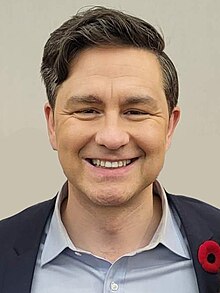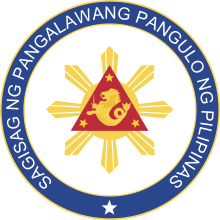
Back Portal:Politik ALS بوابة:السياسة Arabic بوابة:سياسة ARZ Портал:Политика Bulgarian প্রবেশদ্বার:রাজনীতি Bengali/Bangla Portal:Politika BS دەروازە:سیاسەت CKB Portál:Politika Czech Portal:Politik German Portal:Siyaset DIQ
| Main | Topics and categories | Tasks and projects |
The Politics portal
Politics (from Ancient Greek πολιτικά (politiká) 'affairs of the cities') is the set of activities that are associated with making decisions in groups, or other forms of power relations among individuals, such as the distribution of resources or status. The branch of social science that studies politics and government is referred to as political science.
It may be used positively in the context of a "political solution" which is compromising and non-violent, or descriptively as "the art or science of government", but also often carries a negative connotation. The concept has been defined in various ways, and different approaches have fundamentally differing views on whether it should be used extensively or in a limited way, empirically or normatively, and on whether conflict or co-operation is more essential to it.
A variety of methods are deployed in politics, which include promoting one's own political views among people, negotiation with other political subjects, making laws, and exercising internal and external force, including warfare against adversaries. Politics is exercised on a wide range of social levels, from clans and tribes of traditional societies, through modern local governments, companies and institutions up to sovereign states, to the international level.
In modern nation states, people often form political parties to represent their ideas. Members of a party often agree to take the same position on many issues and agree to support the same changes to law and the same leaders. An election is usually a competition between different parties.
A political system is a framework which defines acceptable political methods within a society. The history of political thought can be traced back to early antiquity, with seminal works such as Plato's Republic, Aristotle's Politics, Confucius's political manuscripts and Chanakya's Arthashastra. (Full article...)
Selected article
The Saint-Sylvestre coup d'état was a coup d'état staged by Jean-Bédel Bokassa, leader of the Central African Republic army, and his military officers against the government of President David Dacko on 31 December 1965 and 1 January 1966. Dacko was aware that Bokassa had made plans to take over his government, and countered by forming the gendarmerie headed by Jean Izamo. Bokassa and his men started the coup on New Year's Eve in 1965 by first capturing Izamo and locking him in a cellar at Camp de Roux. They then occupied the capital, Bangui, and overpowered the gendarmerie and other resistance. After midnight, Dacko was arrested and forced to resign from office and then imprisoned at Camp Kassaï. According to official reports, eight people died while resisting the coup. Izamo was tortured to death within a month, but Dacko's life was spared due to foreign intervention. Soon after the coup, Bokassa dissolved the National Assembly, abolished the Constitution and issued a number of decrees, banning begging, female circumcision, and polygamy, among other things. Bokassa initially struggled to obtain international recognition for his regime, but the new government eventually obtained recognition from other African nations.
Featured picture

David Ben-Gurion (born David Grün; 16 October 1886 – 1 December 1973) was the primary national founder of the State of Israel and the first Prime Minister of Israel. Adopting the name of Ben-Gurion in 1909, he rose to become the preeminent leader of the Jewish community in British-ruled Mandatory Palestine from 1935 until the establishment of the State of Israel in 1948, which he led until 1963 with a short break in 1954–55.
Selected quote
Selected biography
Dobroslav Jevđević (1895–1962) was a Bosnian Serb politician and self-appointed Chetnik commander in the Herzegovina region of Yugoslavia during the Second World War. He was a member of the inter–war Chetnik Association and the Organisation of Yugoslav Nationalists party in the Kingdom of Yugoslavia, a Yugoslav National Party member of the National Assembly, and a leader of the opposition during King Alexander's dictatorship. Following the invasion of Yugoslavia by the Axis in April 1941, he became a Chetnik leader in Herzegovina and joined the Chetnik movement of Draža Mihailović, although he often operated independently from Mihailović. Jevđević collaborated with the Italians and later the Germans in actions against the Yugoslav Partisans. During a joint Italian-Chetnik Operation Alfa, Jevđević's Chetniks, along with other Chetnik forces, were responsible for killing between 500 and 1,700 Bosnian Muslim and Catholic civilians in the Prozor region in October 1942. His force also participated in one of the largest Axis anti-Partisan operations of the war, Case White, in the winter of 1943. In the spring of 1945, he fled to Italy where he resided until his death.
Did you know (auto-generated) -

- ... that a political action committee paid $132,000 to former First Lady Melania Trump's fashion stylist for strategy consulting?
- ... that New Jersey politics expert Nick Acocella hosted Pasta & Politics, a television show where he would make pasta with various politicians including Thomas Kean, Cory Booker, and Chris Christie?
- ... that Prawoto Mangkusasmito did not complete law school before the Japanese invaded because he was too busy with student and political organizations?
- ... that even though the Legislative Assembly of Quebec ordered a monument of Maurice Duplessis in front of its building, later premiers hid it for 16 years to avoid political tensions?
- ... that following the ban of its labour unions in 1934, the Romanian United Socialist Party would rely on its youth and women's wings for political action?
- ... that thousands of political prisoners in Indonesia were interned in the Waeapo River valley in Buru?
More did you know...
- ...that the first phase of Mitt Romney's 2012 U.S. presidential campaign was announced via a video message?
- ...that the National Assembly of Azerbaijan was the first secular republican parliament in the Muslim world?
- ...that in world-system theory, sociologists debate whether two world-systems have ever existed during the same period?
- ...that former Republican California State Senator Becky Morgan served on the Board of Trustees of both her alma maters, Stanford University and Cornell University?
- ...that co-founder of the Saudi Civil and Political Rights Association Mohammed al-Bejadi spent most of 2011 in prison?
- ...that during the Sixth Congress of the Cuban Communist Party, Raúl Castro proposed term limits for the country's leaders?
In this month
- April 1, 1979 – Iran's government becomes an Islamic Republic by a 98% vote, overthrowing the Shah officially.
- April 9, 1948 – the period known as La Violencia begins with the assassination of Colombian Liberal Party leader Jorge Eliécer Gaitán. For the next ten years Liberals, Communists and Conservatives would fight each other in the conflict.
- April 9, 2003 – Government of Saddam Hussein overthrown by American forces in Iraq.
- April 19, 2006 – Han Myung-sook becomes South Korea's first female Prime Minister.
- April 24, 2005 – Presidential elections in Togo return Faure Gnassingbe to power two months after he was installed by the military following the death of his father, Gnassingbé Eyadéma.
- April 28, 1937 – Saddam Hussein, the President of Iraq was born.
- April 30, 1945 – Adolf Hitler and his wife Eva Braun, commit suicide as the Red Army approached the Führerbunker in Berlin. Karl Dönitz succeeds Hitler as President of Germany; Joseph Goebbels succeeds Hitler as Chancellor of Germany.
News and Current events
- August 11: 4 local government areas in New South Wales, Australia locked down after COVID-19 case
- August 11: Australia: AstraZeneca vaccine access expanded by Victorian government
- August 1: Australia: Victorian lockdown lifted
- July 29: Tunisia's president dismisses prime minister, suspends parliament
- July 25: Australia: Wikinews interviews Reg Kidd, mayor of the City of Orange, about COVID-19 lockdown and local government
- July 23: South Australia enters week-long lockdown to contain COVID-19 Delta variant spread
- July 21: Technological University Dublin senior lecturer Dr Lorcan Sirr speaks to Wikinews on housing market in Ireland
- July 21: Three rural councils in New South Wales, Australia enter 7-day lockdown
- July 21: Australia: Victoria lockdown extended by a week with 85 active cases recorded
- July 15: California governor signs new state budget, eligible Californians to get stimulus payments
Topics and categories
General images
Related portals
Associated Wikimedia
The following Wikimedia Foundation sister projects provide more on this subject:
-
Commons
Free media repository -
Wikibooks
Free textbooks and manuals -
Wikidata
Free knowledge base -
Wikinews
Free-content news -
Wikiquote
Collection of quotations -
Wikisource
Free-content library -
Wikiversity
Free learning tools -
Wiktionary
Dictionary and thesaurus
Sources
More portals
© MMXXIII Rich X Search. We shall prevail. All rights reserved. Rich X Search
























































